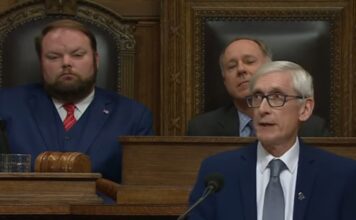(The Center Square) – A bipartisan group of millennial lawmakers on Tuesday unveiled criminal justice reform policy ideas that state representatives are considering introducing during 2021 state legislative sessions.
Included in the conference were Layla Zaidane, executive director of the Millennial Action Project (MAP) Criminal justice Reform Advisory Council, state Rep. Leslie Herod (D-Colorado), and state Rep. Tanner Magee (R-Louisiana).
Some of the policy recommendations the group plans to address in 2021 include ending cash bail policies, reducing recidivism, and reforming sentencing guidelines.
Both Herod and Magee are members of MAP’s State Future Caucus Network, a bipartisan group of state lawmakers that focuses on issues facing millennials and future generations. The Network will distribute the advisory council’s recommendations to its 1,500+ members nationwide.
“Colorado has been very successful in reforming its criminal justice system recently,” Herod said. “But we need to look at past legislative victories as models for future legislation.”
Herod sponsored Colorado’s most sweeping police reform bill, known as SB-217. The bill ended qualified immunity for Denver police officers, requires officers to wear operational body cameras during all encounters with the public, and requires the Denver Police Department to release the footage of an officer involved shooting within 21 days of the incident.
She also has a track record of reaching across the political aisle to pass legislation. Last session, Rep. Herod worked with Republican state Rep. Matt Soper to craft legislation banning the gay panic legal defense in Colorado, which makes a person’s sexual orientation or identity irrelevant to crimes of passion.
Similarly, Magee sponsored a bill during the 2020 regular session that exempts pregnant women from being placed in solitary confinement and voted to pass a bill restoring parole eligibility for youth offenders under 18 serving sentences of 25 years to life.
“Something I’ve noticed during these meetings is that there is bipartisan support for finding new ways to work together to pass meaningful legislation,” he said. “We think criminal justice can be that avenue.”
During Tuesday’s news conference, Magee mentioned he will have six bills ready to introduce when the Louisiana legislature convenes for the 2021 session on April 12. However, he declined to provide specifics because the bills are still being revised.
Herod implored lawmakers to look to local authorities to measure the success of their bills, saying executive action by local governments are the only way to tell whether a policy is working.
“We can’t be in the lead if others aren’t following our lead,” Herod said.
Robert Davis / The Center Square
Go to Source
Reposted with permission
































